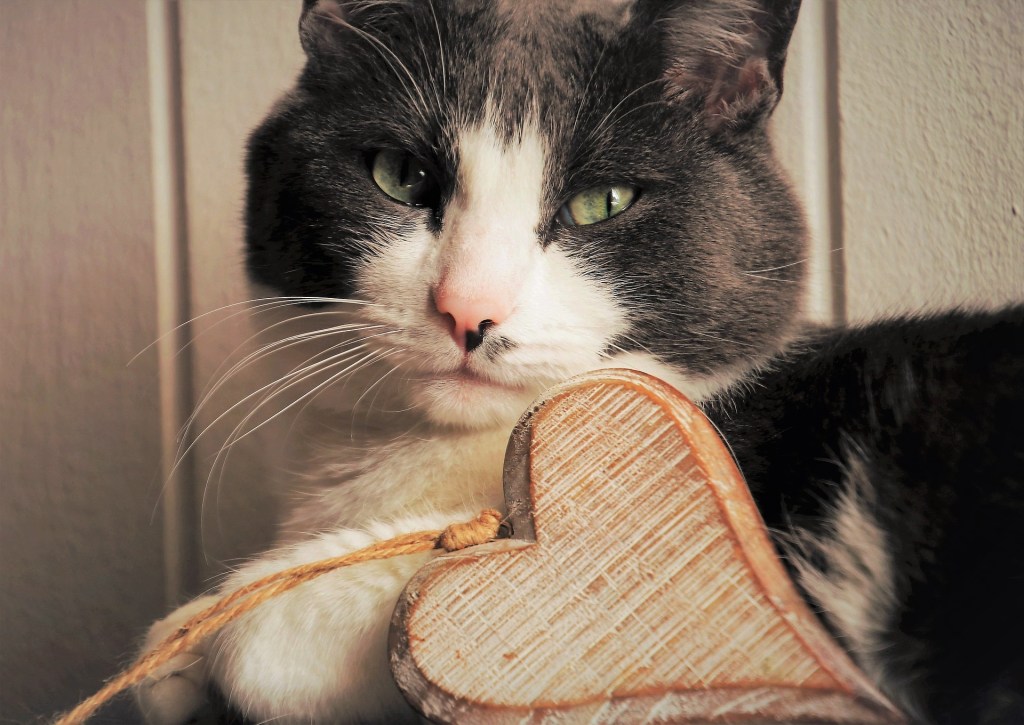You naturally adore your cat, but what if he doesn’t return the same affection? “How to make my cat love me?” is a common question among cat owners, so if you’re looking for ways to bond with your cat, you’re not alone. Cats can be naturally reserved and even standoffish, so if your cat isn’t outwardly affectionate, that doesn’t mean that he doesn’t return the sentiment. Do cats know you love them? Most likely, yes, but they also have different ways of showing their feelings in return. Still, if you put these six tips to work, you can show your cat how you feel about him in multiple ways.
Spend time with your cat
Spending time with your cat is one of the easiest ways to bond with him. Make it a goal to spend time playing with your cat every day. Buy some fun cat toys, like wands, so you can encourage him to play. You might want to get some catnip so you can give it to your cat each day. Soon, your cat will start to associate spending time with you with positive, fun things like playtime.

Provide tasty food
Feeding your cat is another great way to bond with him. Buy him some tasty food that he enjoys, and pay attention to his favorite flavors so you can give him more of the food that he likes the most.
If you live in a household of multiple people, then being the one who always feeds your cat can help you develop a bond with him. Your cat will come to know that you’re his caretaker, and he’ll seek you out when he’s feeling hungry. He’ll also recognize that you give him the food he loves and may start to see you positively because of that association.
Offer treats
Treats also can help you develop a relationship with your cat. You might need to experiment with different types and flavors of treats before you find the one that your cat truly adores, but once you have the right treat, your cat will be crazy about treat time. When you feed treats, it’s important to do so in moderation to avoid upsetting your kitty’s stomach. Consider feeding treats out of your hand for extra bonding benefits with your cat.
Learn your cat’s body language
Taking the time to learn about feline body language can help you better understand your cat and what he’s communicating to you. With this improved understanding, you can better recognize when your cat’s uncomfortable or when he might be asking for attention or affection.
Consider watching some videos about cat body language or reading some articles or books. Then, spend time just watching your cat. See if you can recognize those body language signals throughout the day.
Create a safe environment
For your cat to feel affectionate toward you, he needs to feel safe in the home. Look for ways that you can create an environment where he feels safe.
Your cat will naturally feel safest when he’s up high and off the ground, so provide a cat tree or perches that your cat can use to get up and above all the action. Give your cat a spot in the home that’s all his own, like a cat bed in a quiet corner of your bedroom. This allows him to retreat to a safe space when things get busy in your home and your cat needs a break.

Respect your cat’s boundaries
It’s also important to respect your cat’s boundaries. If your cat seeks out some time alone, then respect that. If his body language is telling you that he doesn’t feel like being social at the moment, then it’s important to back off and give him some space. In turn, when your cat is feeling affectionate and social, you can respond to that by giving him the attention that he’s looking for, keeping him happy, and helping him feel heard and understood.
There are many ways to bond with your cat and show him that you love him. While you can put all these tips to use, it’s most important to be patient and give your cat time, especially if he’s new to your home. Some cats take long times to adjust to new situations, and in most cases, the more space you can give your cat, the sooner he’ll start to feel comfortable in your home. Remember that some cats just aren’t terribly affectionate, so even if your cat doesn’t seek you out for pats or want to cuddle with you, that doesn’t mean that he doesn’t love it — or you. He may just show his love differently.


